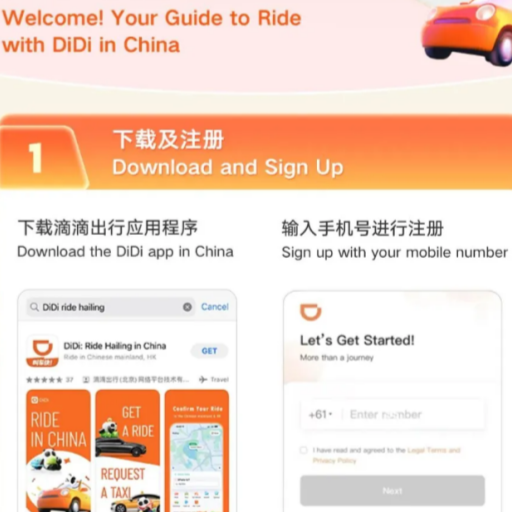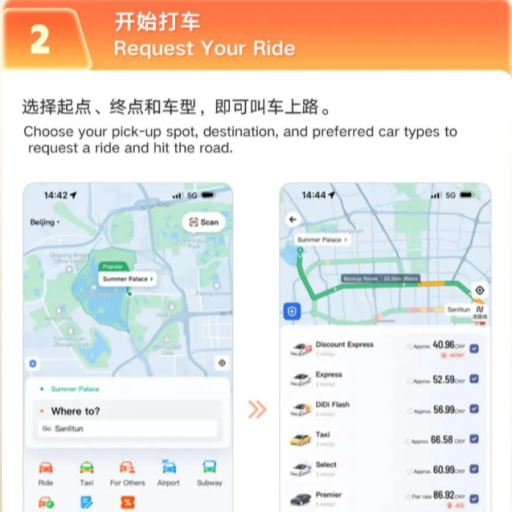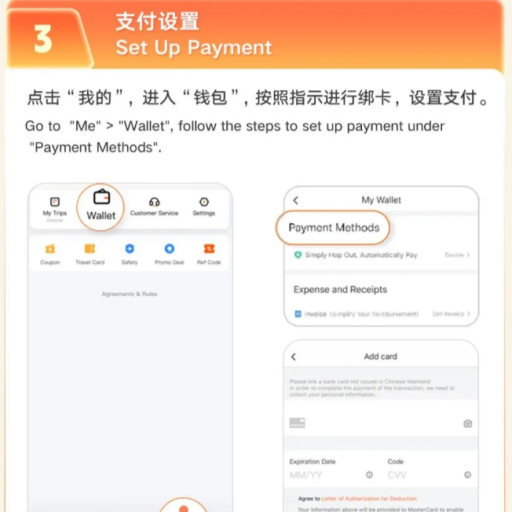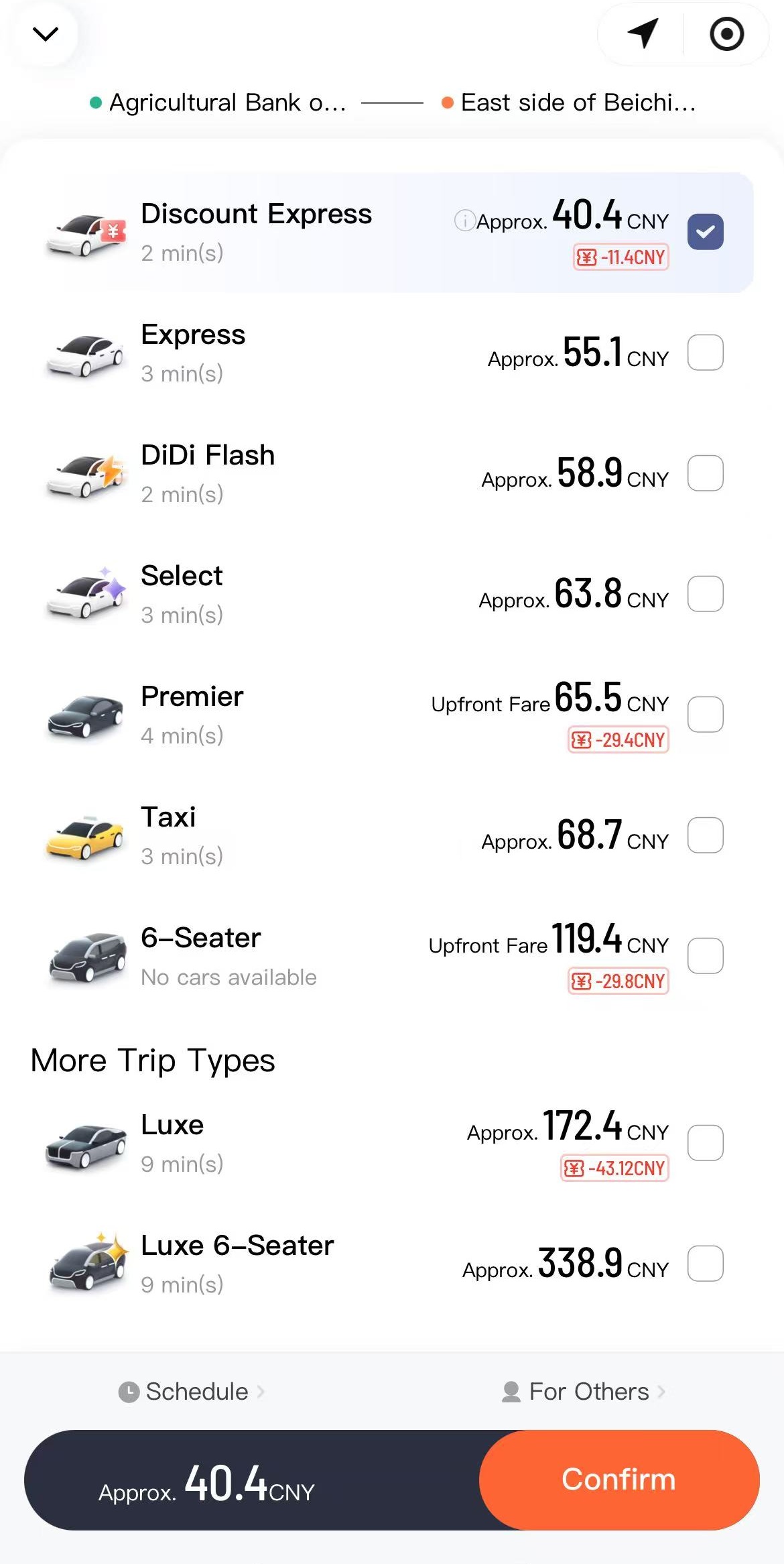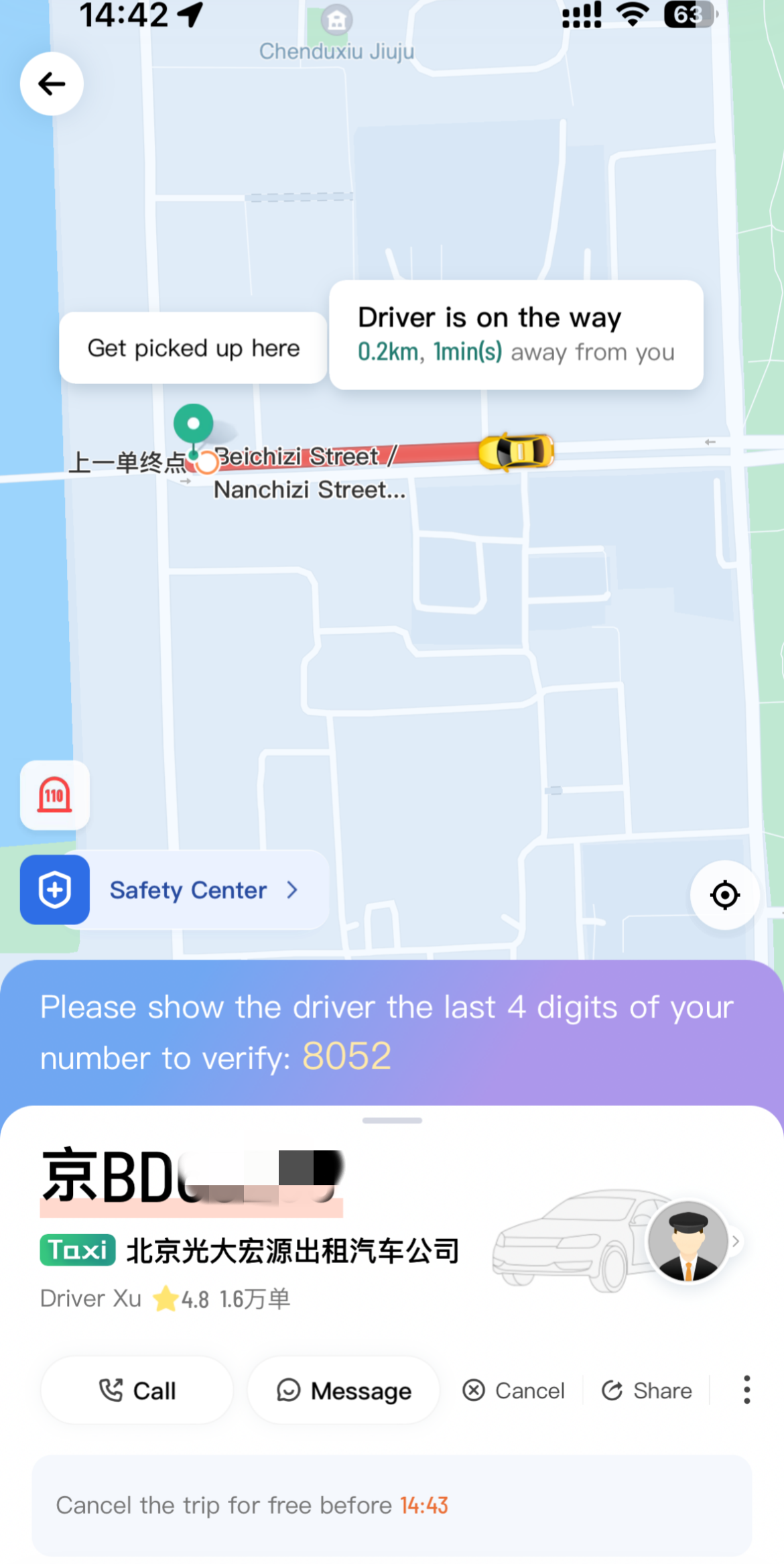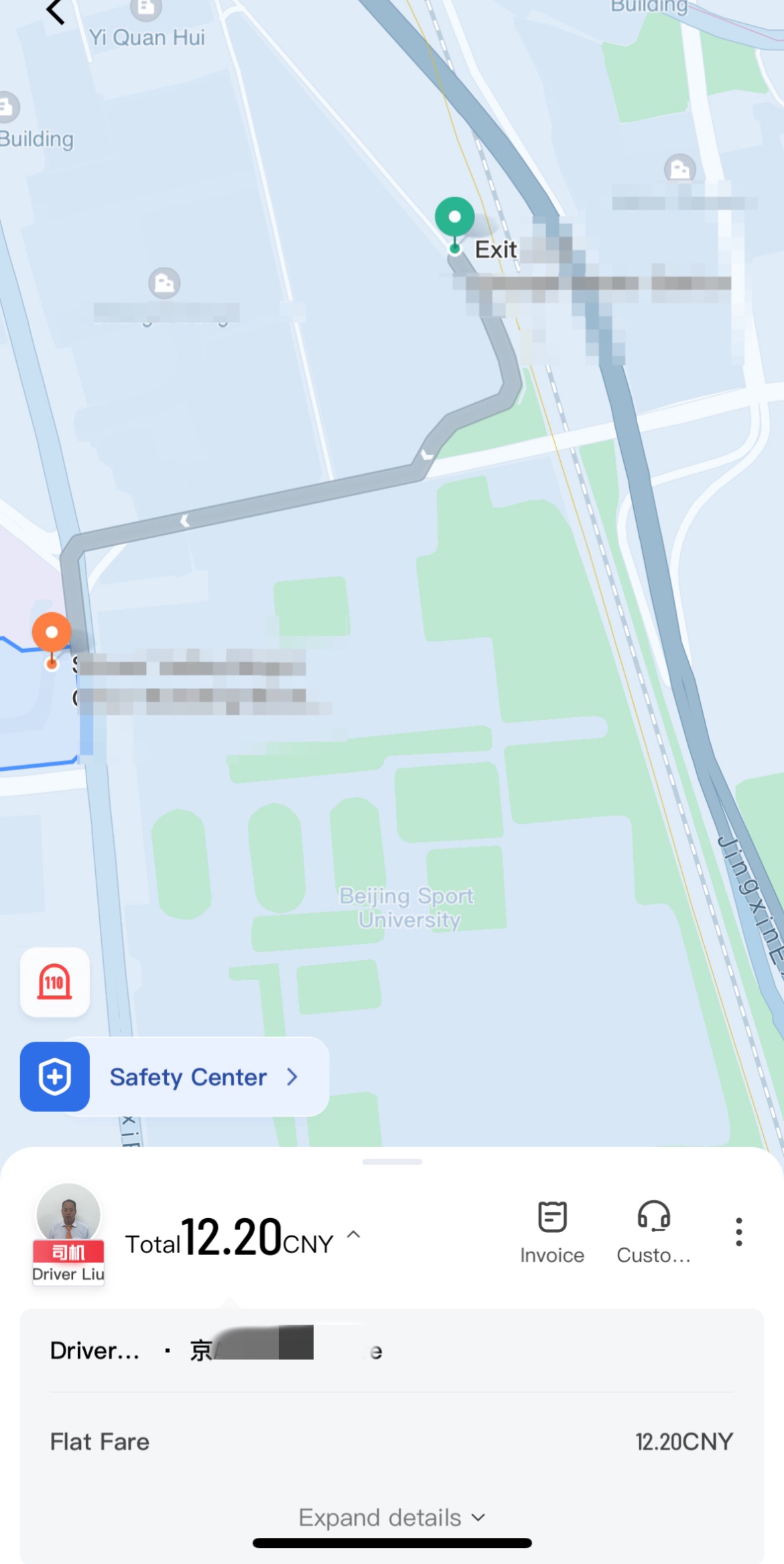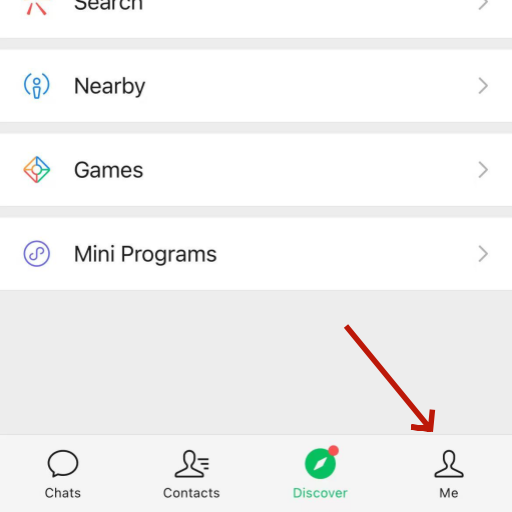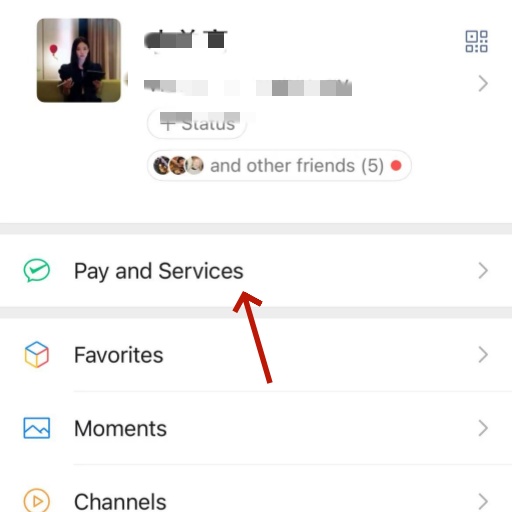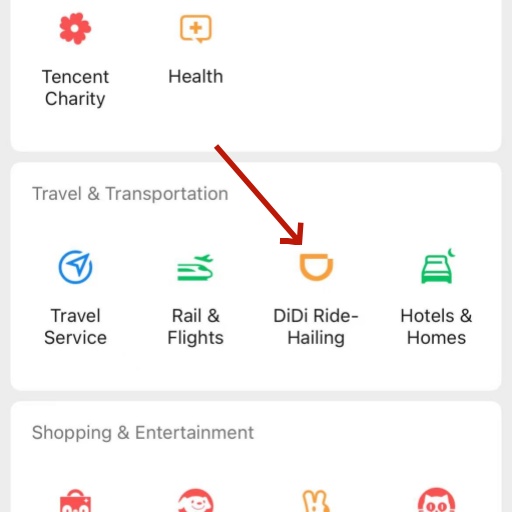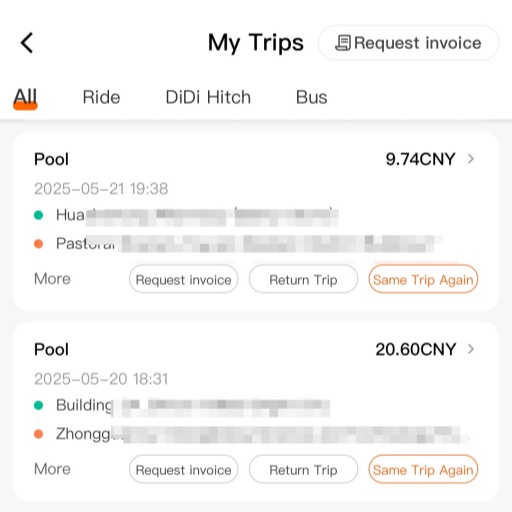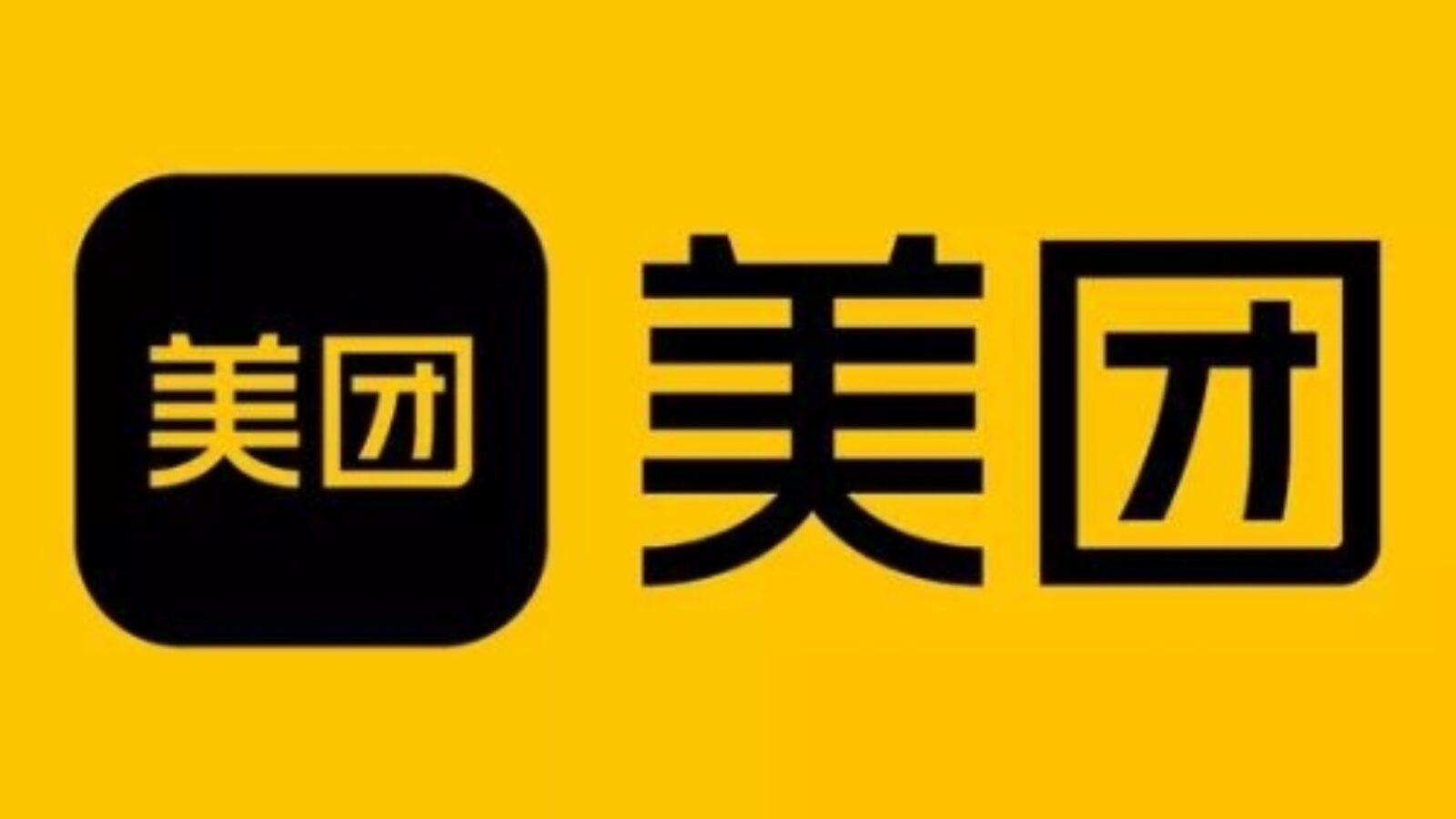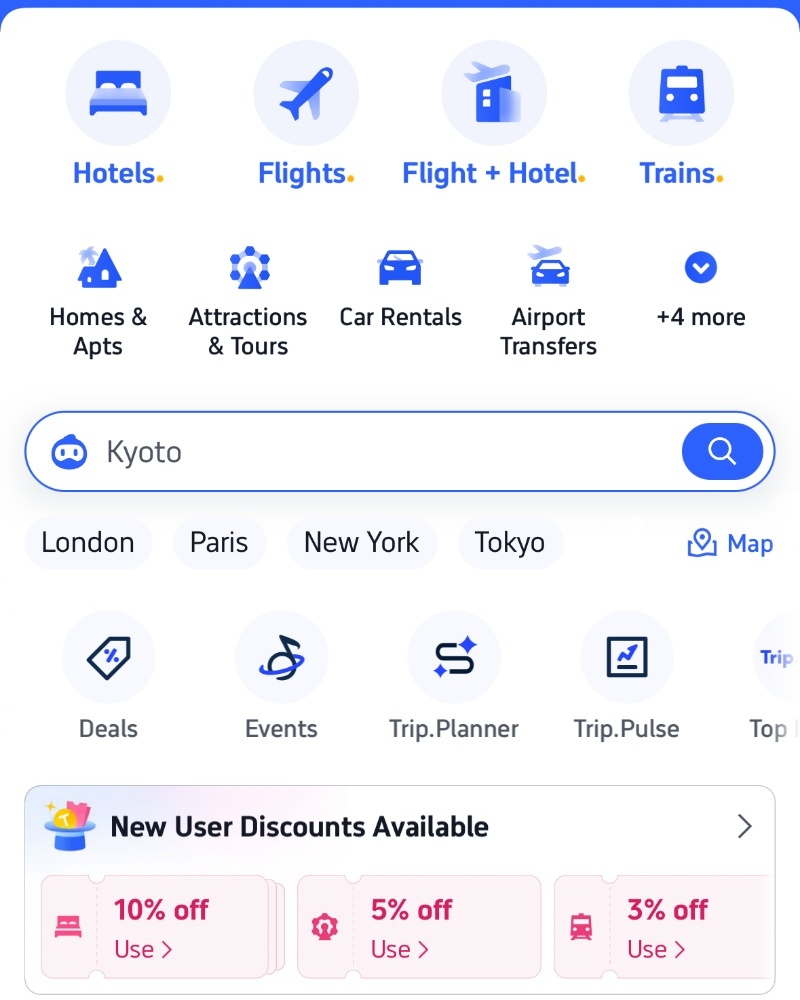Planning a trip to China? Then learning what is Didi might just save your trip. From navigating crowded streets in Beijing to getting a ride after dark in Chengdu, Didi is the ride-hailing app that locals rely on daily—and it works great for foreigners too. This guide breaks down everything you need to know: how to set it up, pay with foreign cards, talk to drivers without Mandarin, and dodge common tourist mistakes. Whether you're a first-timer or just tired of waving at taxis that won’t stop, here’s how to make Didi your best travel companion in China.
What Is Didi and Why Is It Useful for Foreigners in China?

Didi is China's most popular ride-hailing platform
Think of it as the local version of Uber, but with wider coverage, more service types, and deep integration into daily life. It was founded in 2012 and has since become the go-to app for transportation in major Chinese cities. Whether you're in Beijing, Shanghai, or a smaller city like Lijiang, Didi helps you get from A to B quickly, safely, and at a fair price. It’s available in English and supports international payments, which makes it especially helpful for travelers.
Why Foreigners Should Use Didi Instead of Taxis?
Flagging down a taxi in China can be tough if you don’t speak Mandarin. Drivers may not understand your destination or might refuse the ride altogether. Didi solves these problems. The app translates addresses into Chinese, displays fixed fares, and lets you message the driver using built-in translation tools. You also avoid scams, meter manipulation, or cash-only issues. It’s fast, secure, and more predictable than street taxis—especially in tourist hotspots and during peak hours.
Services Offered by Didi
Didi offers more than just a ride. Basic options include:
- Taxi: Standard cabs with metered fares
- Express: Cheaper shared rides
- Premier: More comfortable, private cars
- Luxe: Luxury rides for special occasions
- Didi Bike: Short-distance bike rentals
- Didi Bus: In some cities, fixed-route buses through the app
This flexibility allows tourists to choose services that match their comfort, budget, and needs.
Not sure which app works better for your China trip? Check Didi vs Uber (2025): Which App Wins the Ride-Hailing Battle in China?
Step-by-Step Guide to Set Up Didi as a Tourist
- Step 1
- Step 2
- Step 3
Setting up Didi as a foreign traveler is easier than you might think. Just follow these three simple steps and you’ll be ready to ride like a local.
Step 1: Download and Sign Up
Search for “DiDi: Ride Hailing in China” in your app store and download the official app. Once installed, open it and sign up using your mobile number. You can use an international number—just make sure it can receive SMS. Tap “Let’s Get Started,” choose your country code, and enter your number to receive a verification code.
Tip: If SMS fails, try using WeChat’s Mini Program version as a backup.
Step 2: Request Your Ride
After logging in, you’ll land on the main map screen. Type in your pickup spot and destination—you can use English or paste in Chinese addresses. The app will show you different car types, from Discount Express to Luxe, with estimated fares and wait times. Tap your choice and confirm to book.
Step 3: Set Up Payment
To pay, go to “Me” > “Wallet”, then tap “Payment Methods.” You can add an international Visa or Mastercard, or activate WeChat Pay if linked. Follow the steps to input your card number, expiry date, and security code.
Tip: Set up payment before your first ride so you’re not stuck at checkout.
How to Use Didi for Your First Ride?
- Didi Car Type
- The information you will see
- Complete Ride
Choose the Right Car Type for Your Needs
Didi offers several car types tailored to different travel styles:
- Express: Budget-friendly, fast pickup, great for daily travel
- Premier: More space and comfort, ideal for business or luggage
- Taxi: Regular metered cabs, bookable through the Didi app
- Luxe: Luxury cars with bilingual drivers, only in big cities
What Happens After You Confirm the Ride?
Once you confirm your ride, the app matches you with a nearby driver. You’ll see the license plate number, car model, and a driver photo—all before they arrive. A small map in the app lets you track the car in real-time, so there’s no guessing game.
You’ll also get an estimated arrival time, and if anything changes—traffic or route—you’ll see it updated instantly. If the driver takes too long, the app lets you cancel without a fee after a grace period.
Didi automatically updates you with arrival alerts, including “Driver is nearby” and “Please meet at the pickup point.” Keep your phone handy so you don’t miss these.
Communicate with Drivers Without Speaking Chinese
Didi has an in-app messaging system that includes automatic translation. You can type in English, and the message will be shown to the driver in Chinese. Many drivers also use the preset messages like “I have arrived” or “Where are you?”
If the driver calls and you don’t speak Chinese, don’t panic. Either decline and send a message, or hand the phone to someone nearby to help. Some travelers also prepare a few key phrases in advance, such as your hotel name in Chinese.
Tip: Screenshots help. Show the driver your destination or a nearby landmark. It’s simple, effective, and works almost every time.
Complete the Ride and Make the Payment
After the ride, check your destination before you hop out. Once confirmed, the app processes payment automatically using your selected method—WeChat Pay, Alipay, or international credit card.You’ll see a final fare which might differ slightly from the estimate due to tolls or traffic. No need to hand over cash; receipts and ride history stay in the app for your records.
Common Issues and How to Fix Them
- Didi Mini Program on WeChat Step 1
- Didi Mini Program on WeChat Step 2
- Didi Mini Program on WeChat Step 3
App Not Working or Location Errors
If the Didi app isn’t working—maybe it freezes, won’t load, or shows location errors—don’t stress. There’s a quick fix: use the Didi Mini Program inside WeChat. Just open WeChat, swipe down on the home screen, and search “Didi.” You can request a ride directly from there without needing to reopen the full app. It works well, especially if you're in a rush or stuck with patchy signal. Many travelers wonder what is Didi, not realizing it’s actually baked right into the Chinese super-app everyone uses—WeChat.
The Mini Program version is often more stable in low-signal areas like subway exits, train stations, or inside malls. Unlike the full app, it doesn’t need regular updates, and it runs lighter on your phone. That makes it perfect if you’re using a travel SIM with limited data or an older device. You still get access to all key features—ride options, price estimates, driver info, and even auto-translated chat tools. No need to download anything extra or log in again if you’re already using WeChat. It’s smooth, reliable, and trusted by both locals and tourists.
Payment Fails or Card Not Accepted
One common issue with Didi is failed payments. This happens often when your WeChat Pay isn't properly linked or topped up. Before booking a ride, make sure your international card is connected to WeChat Pay and has available balance. If you're asking "what is Didi" while trying to pay, know this: Didi rides rely entirely on digital payments—no cash allowed.
If WeChat Pay rejects your card, try using Apple Pay, Visa, or Mastercard directly through the Didi app (not WeChat version). You can add a card in your Didi account settings. Some users report better success using UnionPay, so consider that if you're traveling often in China.
Still stuck? Try switching to the app version of Didi instead of the Mini Program. Some payment bugs exist only in the WeChat version. Or, use a Chinese friend’s account and pay them back in cash or another method. It’s not ideal, but many foreign travelers do it. And always keep screenshots of payment errors for reference.
Driver Cancels or Can't Locate You
This one's frustrating—you book a car, and it gets canceled, or the driver can’t find you. It’s common in train stations, malls, and tourist zones with poor signage. First, open the in-app chat and send a pinned location. Long-press on the map and share the precise point, not just an address.
Foreign tourists often ask what is Didi and assume it works like Uber. But in China, landmarks speak louder than street names. Tell the driver you're at “Starbucks by Exit B2” or “next to the red sculpture at People’s Square.” Vague addresses won’t help. You can even type these phrases into translation apps like Pleco or iTranslate to get the Chinese version.
Still lost? Ask hotel or shop staff to speak directly with your driver—they’re used to it. Or cancel and reorder a new ride from a clearer pickup point. Patience goes a long way. Also, check if your map is set to Gaode (Amap) or Baidu Map for better alignment—those are the defaults in China and more accurate than Google Maps.
Extra Tips to Make Your Ride Stress-Free
- Didi Coupon Store
- Your Trips
Pin the Mini Program for Quick Access
Using the Didi Mini Program in WeChat saves time when you're in a rush. Instead of reopening it every time, just pin it to your homepage. To do this, open the Mini Program once, then tap the three dots in the upper right corner. Select "Add to Home Screen" or “Top this Mini Program.” Now it’s always one swipe away.
This hack comes in handy when you’re juggling bags or dodging crowds in busy places like Beijing West Station or Shanghai Disney Resort. Tourists often wonder, what is Didi exactly? It's like Uber, but embedded into Chinese daily life and WeChat itself. So, pinning it keeps your ride request just a tap away—super useful when you don’t have time to scroll or search.
Save Your Hotel Address in Chinese
Many travelers get stuck explaining hotel names to drivers. Even if you say the name correctly in English, it may not help. Didi drivers usually read only Chinese. So before your trip, grab a screenshot of your hotel’s name and address in Chinese. Most booking platforms like Trip.com provide this automatically.
It’s smart to save the address in your phone notes or photo album. You can also favorite it inside the Didi app by pinning it as “Home” or “Lodging.” This helps a lot during late-night returns when your energy is low. Asking "what is Didi" is just the first step—knowing how to talk to your driver without talking is the game changer.
If you're staying at a foreigner-friendly hotel, like Holiday Inn Express Beijing Dongzhimen, make sure to confirm it accepts international guests on Trip.com. Some hotels in China still require foreigner registration with local police. Having the Chinese name helps speed up that process too.
Enable Location Sharing with Travel Partner
Sometimes Didi rides separate travel groups by accident. You call a car, they miss it, and now you’re on different sides of town. That’s why enabling real-time location sharing on WeChat with your travel buddy is a smart move. It’s easy—open the chat, tap the "+" icon, and choose "Location > Real-time Location."
This tip helps especially when your phone dies mid-trip or if one person doesn’t have internet. Remember, “what is Didi” is more than a question—it's a doorway into China’s digital lifestyle. Didi isn't just a car app; it works within an entire smartphone ecosystem. Learning these WeChat functions is part of the ride.
You can also drop your live pin in the Didi ride chat. This gives your driver more accuracy than typing. China’s city streets can be confusing—numbered alleys, similar names, and limited signage. A shared pin ensures your group stays together even when phones fail or drivers get lost.
Frequently Asked Questions (FAQs)
Q: Is Didi safe for solo female travelers in China?
Yes, Didi is generally safe for solo female travelers. The app includes real-time ride tracking, driver ID verification, and an emergency button that can alert local police or send your location to contacts. You can also share your ride status with friends through WeChat. If you prefer added security, use “Premier” or “Luxe” rides, which often feature higher-rated drivers and newer vehicles. Also, avoid late-night pickups in poorly lit areas and confirm the car plate number before getting in. Overall, Didi is considered safer than hailing a taxi on the street—especially for non-Mandarin speakers.
Q: Can I use Didi from the airport after arriving in China?
Absolutely. Didi is available at all major Chinese airports, including Beijing Capital, Shanghai Pudong, and Guangzhou Baiyun. After exiting customs, open Didi (via app or WeChat Mini Program), set your pickup point at the designated ride-hailing area, and choose your car type. Note: Some airports charge a pickup fee of around ¥10–20, which is included in your fare. For a smoother experience, avoid peak times like weekends or holidays when wait times can stretch. Didi’s app shows live wait estimates and provides airport-specific pickup instructions.
Q: Does Didi work in smaller or rural cities in China?
Didi is widely available in most Chinese cities, but coverage in rural or remote areas can be limited. While cities like Lijiang, Zhangjiajie, and Guilin offer reliable service, smaller villages or mountainous areas may not. In these spots, local taxis, hotel shuttles, or car rentals are more practical. You can check Didi availability by opening the app at your location. If it shows no cars nearby, don’t worry—many hotels can help you call a car or even assist through their own WeChat account. Always have a backup plan outside major urban centers.
Q: Can I schedule a Didi ride in advance like I can with Uber?
Yes, Didi offers ride scheduling for certain services like Premier and Luxe. You can book a ride up to 7 days in advance, selecting your pickup time and location. This is especially helpful for early flights or high-demand hours. Keep in mind that scheduling doesn’t guarantee a car will be available, but it gives you priority. Once confirmed, the app sends a reminder close to your pickup time. You can cancel or modify the ride if plans change—just do so early to avoid last-minute cancellation fees.
Wondering what to use when Uber doesn’t work in China? Check Uber in Shanghai: Top Alternatives for Easy and Reliable Rides in China
Q: Can I get a Didi ride without a Chinese phone number?
Yes, but with limitations. You can register for Didi using an international number—just make sure your phone has roaming enabled or a reliable data connection. However, some verification codes may fail to arrive on non-Chinese carriers. If that happens, consider getting a Chinese SIM card at the airport or using WeChat Mini Program login, which skips phone verification if you're already logged into WeChat. Many travelers solve this by using eSIM services like Airalo or Nomad, which offer China-compatible plans. Once set up, the app functions normally with your international number.
Q: Are there any discounts or coupons for new users on Didi?
Yes, new users—especially foreign tourists—can often receive welcome coupons when registering. These are typically ¥5–¥20 off your first few rides. In the Didi app or Mini Program, check the “Wallet” or “Coupon” section after sign-up. Occasionally, Didi also runs seasonal promotions during holidays like Golden Week or Chinese New Year, offering extra discounts or rewards points. Pro tip: Switch between WeChat Mini Program and the full Didi app—each may have its own set of offers.
Q: Is tipping drivers on Didi expected or allowed?
Tipping is not required in China, and Didi drivers do not expect it. The fare you see includes everything—there’s no add-on service fee, and there’s no in-app tipping feature like Uber. If you feel a driver went above and beyond (e.g., helped with heavy luggage or waited patiently), a polite thank you or a 5-star review is more than enough. Some travelers offer a small tip in cash, but this is optional and not culturally expected. In general, tipping culture in China is minimal, especially with app-based services like Didi.
Want more China travel ideas? Check out our city guides on Beijing, Shanghai, Guangzhou, and Chengdu.
